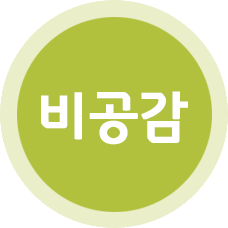먼저 전문부터 올릴게요.
ASHLEY HALL: Korea is one of Asia's most racially homogenous countries and its culture values ethnic purity.
But recent economic growth has attracted large numbers of migrants.
Jasmine Lee is the country's first non-ethnic Korean to be elected to the country's parliament. She says the government needs to do more to teach Koreans about accepting multiculturalism.
James Oaten reports from Seoul.
(Sound of Korean music)
JAMES OATEN: Justine Tiempo migrated to Korea 10 years ago for an arranged marriage.
It was a difficult time for the Filipino national, isolated in a new country because of a lack of language skills, and a Korean attitude hostile to foreigners.
JUSTINE TIEMPO: There are some person that are very welcoming, but sometimes I had the experience that they disregarded some foreigners before. Yes, I have those experiences that I was neglected, and I was disregarded because I am a foreigner.
JAMES OATEN: Since then, Korea's migrant population has more than doubled - to 1.5 million and that's creating problems for the government.
This is representative Jasmine Lee of the ruling Saenuri Party.
JASMINE LEE: The government is actually very unprepared for the fast rise of the immigrants in the country.
JAMES OATEN: In April the former Filipino TV star became the first non-Korean born member of parliament but her victory attracted an ugly backlash.
She's been the target of a racist online campaign questioning her right to live Korea.
By 2020, one-in-five families in Korea will be multicultural. To help cope with the influx, migrant community centres have been springing up in Seoul, to equip migrants with language and employment skills.
The government's also implementing educational and counselling services, as well as translation hotlines, but there's still a long way to go.
Last year, a government survey of 2,500 people showed only 36 per cent welcomed migrants.
Jasper Kim from Asia-Pacific Global Research explains.
JASPER KIM: We're seeing non-Koreans coming into South Korea, not just to visit but also to live on a permanent basis. This is fundamentally new. It's a paradigm shift for South Korea. It's a country that really values being a homogenous society and you'll see that when Koreans talk, they speak in terms of, well, this is our country. Woori Nara is the way the expression that's being used over and over again.
JAMES OATEN: It's this approach adopted by the hardline, conservative parties trying to stem rising immigration rates.
"I love Korea" is an amalgamation of six anti-migration groups, who claim to have more than 20,000 members.
Ryu Byung-Kyun is one of six leaders from the new political party.
RYU BYUNG-KYUN (translated): Crimes by foreign workers are serious. I'm not sure it's a matter of their low educational background in slums but they do not follow social norms easily and often have impulses towards criminal behaviour. These foreign workers do not try to adapt to Korean norms, customs and cultures even though Korea is spending a lot of money for their education and welfare.
JAMES OATEN: But representative Jasmine Lee says she's just the start of a modern, multicultural Korea.
JASMINE LEE: We cannot force them to be Koreans, we have to understand where they're coming from, and what they're thinking.
JAMES OATEN: She says a culturally-pure Korea will eventually become a thing of the past.
(Korean music)
ASHLEY HALL: That's James Oaten.
ㅡㅡㅡㅡㅡㅡㅡㅡㅡㅡㅡㅡㅡㅡㅡㅡㅡㅡㅡㅡㅡㅡㅡㅡㅡㅡㅡㅡㅡㅡㅡㅡㅡㅡㅡㅡㅡㅡㅡㅡㅡㅡㅡㅡㅡㅡㅡㅡㅡㅡㅡ
영어 잘 하지도 못하는 제가 대충 해석 되는 것보니 여러분도 대부분 대충은 해석하실 수 있으리라 봅니다.
베오베에 올라와 있는 이자스민에 대한 글을 일부 발췌된 것만보며 전체문장을 읽어야 한다고 생각을 했고 전체적으로 읽은 결과 이자스민의 발언에 대해 크게 문제를 느끼지 못하였습니다.
전문은 보시면 알겠지만 이건 한국의 다문화화에 대한 이야기입니다.
이자스민에 대한 이야기는 일부에 불과하죠.
전체적 문맥은 이렇습니다. 역사적인 단일민족 한국이 최근에 많은 외국인을 받아들이지만 실질적 제도나 사람들의 인식은 그것을 따라가 주지 못한다는 것입니다. 그리고 시작부분에 국회의원이 된 이자스민에 말을 인용합니다.
She says the government needs to do more to teach Koreans about accepting multiculturalism.
이자스민은 정부가 한국민들에게 다문화주의를 받아들이게 가르치는 것은 필요하다고 말한다.
이자스민의 말 뒤에 다른 필리핀인인 JUSTINE TIEMPO이 나옵니다. 그는 10년전에 한국으로와 결혼생활을 하며 살아가고 있습니다.
뉴스는 또 그의 말을 인용합니다.
Yes, I have those experiences that I was neglected, and I was disregarded because I am a foreigner.
그렇습니다. 저는 무시당한 이러한 경험들을 가지고있습니다. 저는 외국인이란 이유만으로 무시당했습니다.
이자스민의 말은 또 다시 인용됩니다.
JASMINE LEE: The government is actually very unprepared for the fast rise of the immigrants in the country.
정부는 빠르게 증가하는 이민에대해 제대로 준비하고 있지 못하고 있습니다.
류병권이라는 사람의 말도 인용됩니다. 그는 외국인포비아로 보입니다.
RYU BYUNG-KYUN (translated): Crimes by foreign workers are serious. I'm not sure it's a matter of their low educational background in slums but they do not follow social norms easily and often have impulses towards criminal behaviour. These foreign workers do not try to adapt to Korean norms, customs and cultures even though Korea is spending a lot of money for their education and welfare.
대충 해석하면 외국인에 의한 규범범죄가 심각하고 그들은 한국의 문화도 쉽게 따르지 못하며 범죄적인 행동을 한다는 것입니다.
그리고 이자스민은 말합니다.
We cannot force them to be Koreans, we have to understand where they're coming from, and what they're thinking.
우리는 그들에게 한국인이 되라고 강제할 수 없다. 우리는 그들이 어디에서 왔고 무엇을 생각하는지 이해해야만 한다.
베오베에서 봤듯이 이런 문장도 있었습니다.
She says a culturally-pure Korea will eventually become a thing of the past.
그녀는 말한다. 문화적으로 순수한 한국인은 결국엔 과거의 것이 될 것이다.
결국이것은 한국인 다문화화에 대한 단순한 이야기일 뿐입니다.
한국은 점점 다문화화 되어가고 있습니다. 기사 중간엔
By 2020, one-in-five families in Korea will be multicultural.
한국은 2020년까지 다섯가정중 하나는 다문화가정이 될것이다.
라는 말이 있습니다.
이자스민이 국회의원이 된 것은 그 다문화 가정을 나타내는 하나의 상징이기에 인터뷰를 한 것이구요.
전체적인 맥락으로 보았을 때 이자스민의 발언은 크게 문제될 것이 없어보입니다, 개인적으로.
오히려 저는 중간에 나온 외국인 혐오자가 더 문제있어 보였죠.
저 또한 새누리당을 싫어하고 이자스민도 좋아하지 않습니다.
하지만 누군가를 비판할 때 편견없는 눈으로 보았으면 좋겠습니다.
그리고 기사에서 보듯 일베와 같이 외국인에 대한 무조건 적인 혐오는 사라졌으면 좋겠습니다.
외국인이나 다문화 가정이나 좀 더 살기 좋은 한국이 되었으면 좋겠습니다.





